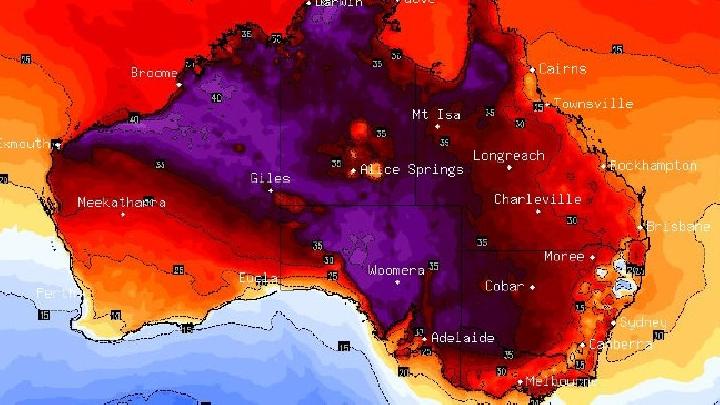November 11, 2024 | 09:27 pm
TEMPO.CO, Jakarta - The emerging blue economy framework continues to expand as more countries seek to join the movement. Previously, the World Bank stated that the global importance of the blue economy is expected to double to $3 trillion by 2030, indicating its dominant force in various maritime sectors.
This article follows the ideas of a blue economy, its benefits, and its challenges, as highlighted by the World Bank and the LSE.
What is the Blue Economy?
The blue economy refers to economic ventures closely linked to the oceans, seas, and coasts, encompassing various activities such as fisheries, maritime transport, renewable energy, tourism, climate change, and waste management.
According to the World Bank, the blue economy is "the sustainable use of ocean resources for economic growth, improved livelihoods and jobs, and the health of ocean ecosystems.
Quoting the United Nations, the Center for the Blue Economy further defines the project: "It is now a widely used term around the world with three related but distinct meanings - the overall contribution of the oceans to economies, the need to address the environmental and ecological sustainability of the oceans, and the ocean economy as a growth opportunity for both developed and developing countries.
During its early introduction, questions about the difference between the green economy and the blue economy were common at certain environmental conferences. In general, the blue economy has its fair share of origins in the green economy concept, which emphasizes environmental issues from an economic perspective.
While green economy strategies focus on the "green" sectors of energy, transportation, and small parts of agriculture and forestry, the blue economy focuses on fisheries, ocean, and coastal resources, according to the Commonwealth Foundation.
Benefits and Challenges of the Blue Economy
Within the market framework, the blue economy benefits both local and regional development through job creation and economic growth.
In its paper on this emerging economic initiative, the OECD projects that by 2030, the blue economy could create more than 40 million jobs and contribute more than US$3 trillion to global economic growth. This expansion would be driven largely by ocean-based industries, which account for 2.5% of total global gross value added.
The blue economy movement will also benefit non-market sectors by providing ecosystem services such as food and raw material supply, carbon sequestration, water purification, biodiversity conservation, and recreational opportunities.
In the fight against climate change, the oceans have gained popularity for their ability to provide renewable energy. In addition, the joint economic venture can also provide better management of marine ecosystems, lower emissions, and overall healthier standards.
On the other hand, the marine ecosystem is a vulnerable frontier, constantly threatened by human activities that drive environmental degradation. According to UNRIC, threats to the ecosystem include pollution, ocean warming, acidification, eutrophication, and fisheries collapse.
With continued global cooperation and responsible practices, the blue economy holds great promise for economic growth. However, the path to fully realizing a thriving blue economy requires addressing challenges such as pollution, ecosystem degradation, and climate change.
World Bank | LSE
Editor's Choice: Prabowo, Xi Jinping Discuss Blue Economy, Giant Sea Wall Project in Beijing
Click here to get the latest news updates from Tempo on Google News
Prabowo, Xi Jinping Discuss Blue Economy, Giant Sea Wall Project in Beijing
9 jam lalu

Prabowo Subianto was invited by the President of China, Xi Jinping, to visit Beijing on November 8-10. What were the highlights of their discussion?
200 Canada's Trade Delegates to visit Indonesia in December
3 hari lalu

A trade mission from Canada consisting of 200 delegates will visit Indonesia next month. This month, the two countries are holding the 10th round of ICA-CEPA negotiations.
INDEF Cites Concerns of Overlapping Functions in the National Economic Council, Chaired by Luhut Pandjaitan
10 hari lalu

INDEF says the National Economic Council, led by Luhut Pandjaitan, potentially overlap with other institutions.
Australia Has Already Warmed by More Than 1.5 Degrees
11 hari lalu

Australia has warmed by 1.51 degrees Celsius since 1910, according to new State of Climate 2024 report. What does this mean for our climate future?
How to Start Making Passive Income with No Money; Try These 5 Ideas!
13 hari lalu

This article presents five passive income ideas that require no upfront investment and can help you start making passive income with no money.
Dharma Pongrekun: Jakarta Residents Can Have Money Even at Home Through Adab Getuk Program
15 hari lalu

According to Jakarta gubernatorial candidate Dharma Pongrekun, the flagship program can secure the people's economy to survive and be inherited.
Indonesia Wants to Join BRICS, Ministry Says
16 hari lalu

Indonesia expresses its desire to join the BRICS group of major emerging economies, which accounts for 35% of global economic output.
Chinese Finance Professionals Switch Careers as Industry Crackdown Dims Prospects
25 hari lalu

Disillusioned Chinese bankers and fund managers are giving up careers in a finance sector.
Thai Central Bank Unexpectedly Cuts Key Rate by 25 Bps
26 hari lalu

Thailand's central bank unexpectedly cut its key interest rate at a policy review on Wednesday.
Gig Economy: Definition, Benefits, and What You Need to Know
28 hari lalu

The gig economy is best known for its flexibility and independence. Learn more about it here before starting your journey as an individual worker!

 3 months ago
61
3 months ago
61












































